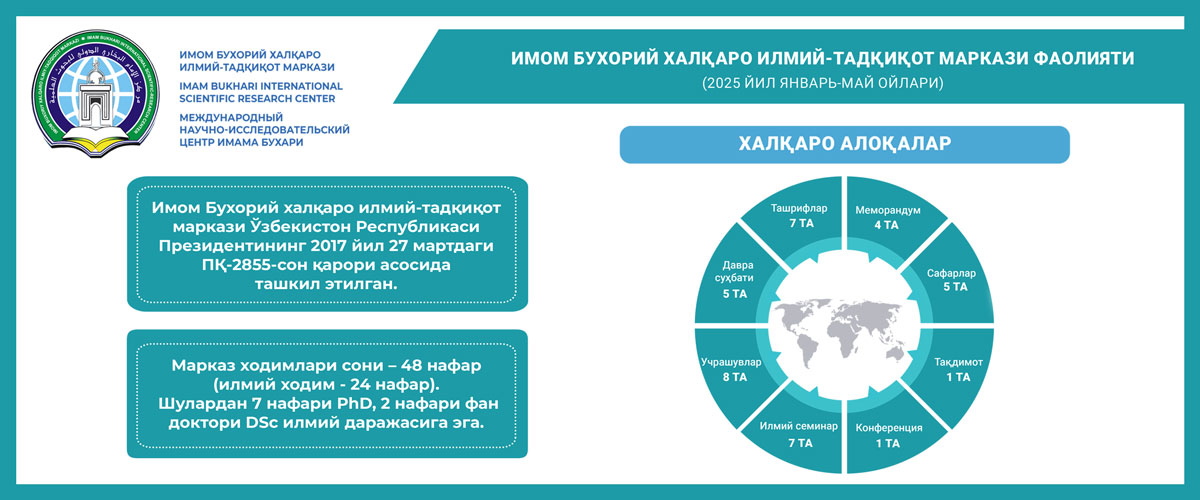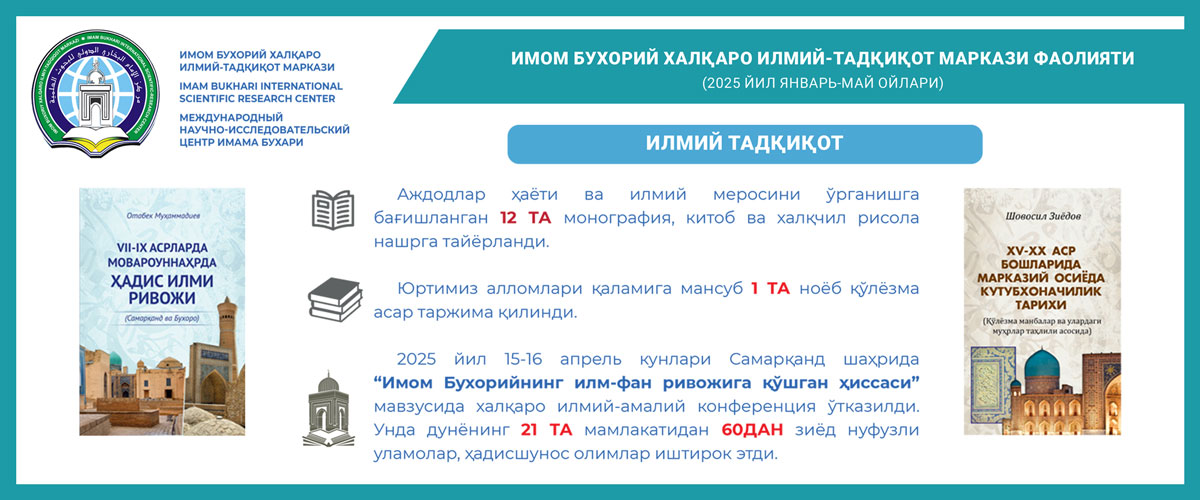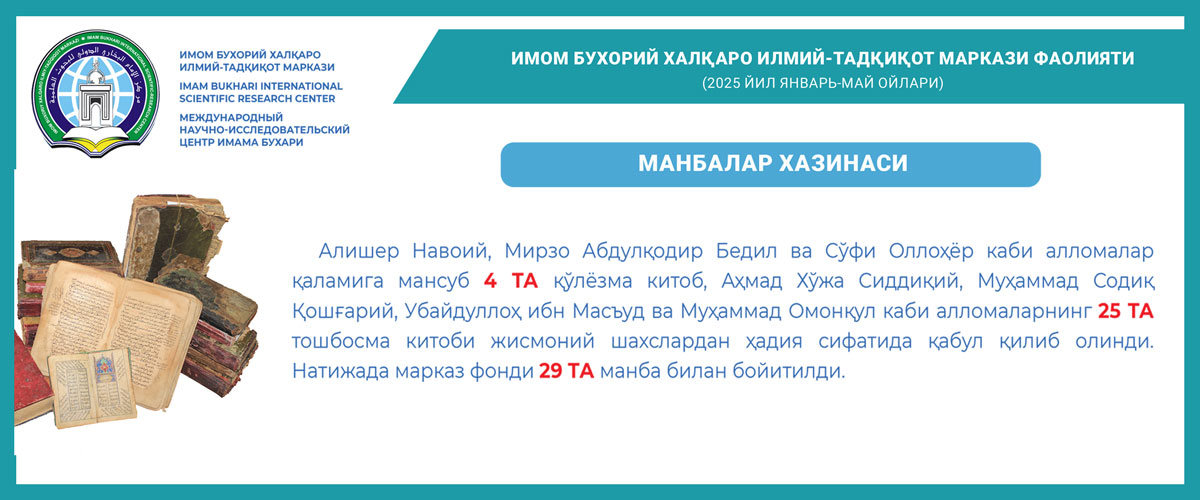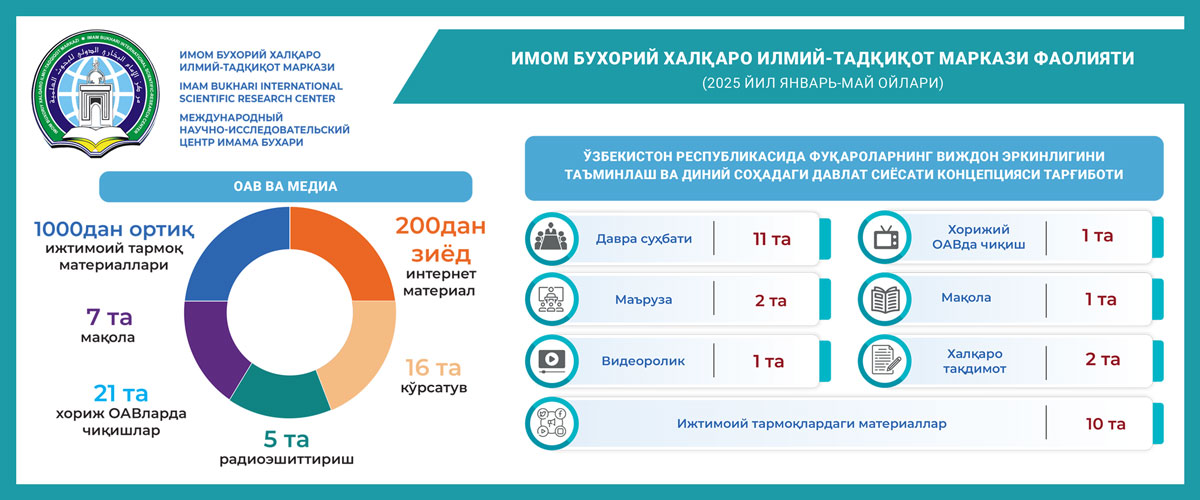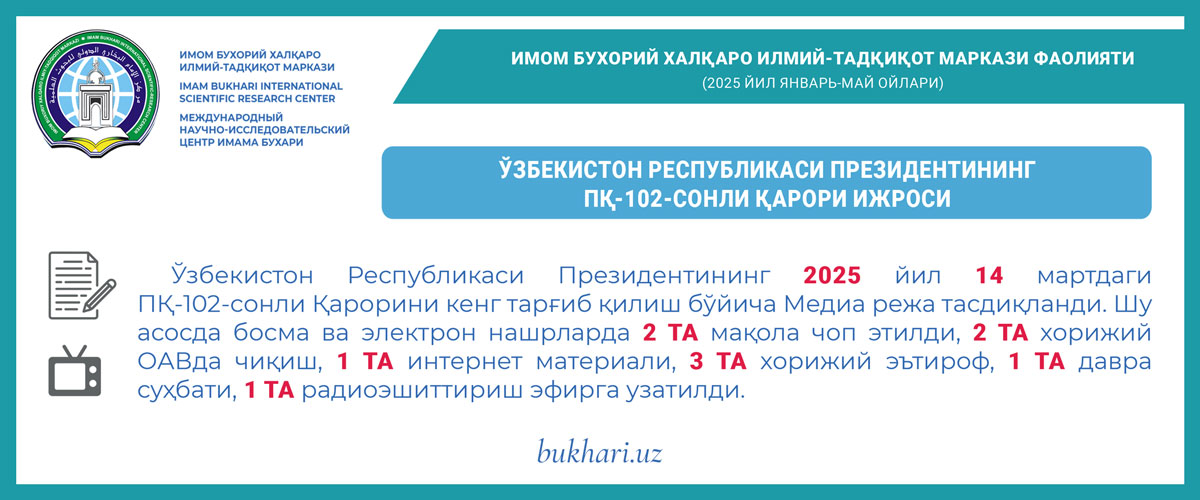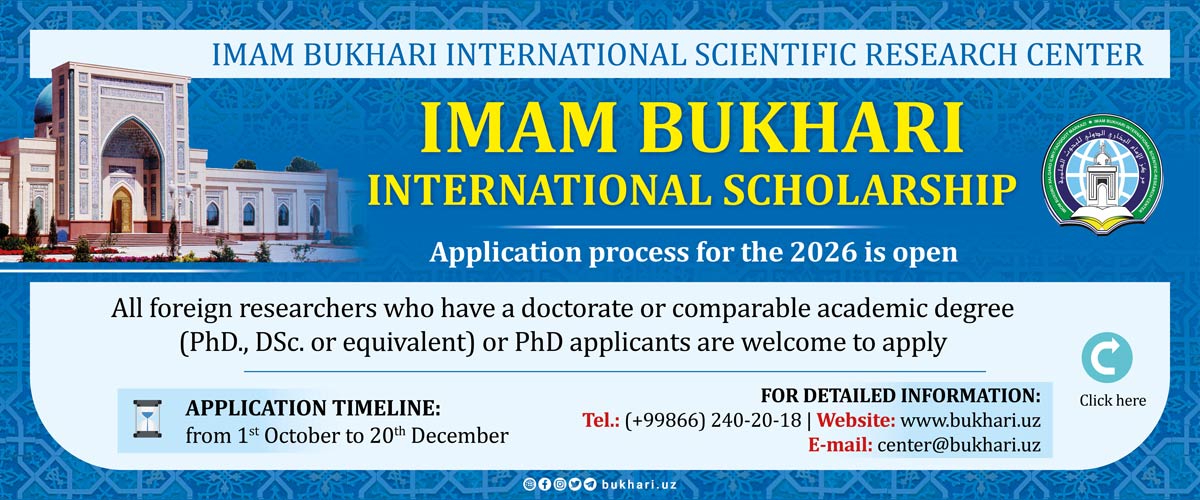Having Allah’s mercy, our native land has produced and educated great scholars and geniuses who have made contributions of world scale importance to the development of science and culture not only from such world famous cities as Bukhara, Samarkand, Nasaf, Termez but also from the farthest provinces of the country. One of such cities situated on the Great Silk Road is Ghijduvan, which has always been famous in the history as one of the centres of science, education and trade. The scholars born in this estimated city have been known to the world under the penname al-Ghijduvani.
It is well known from the history that during his reign, a Temurid prince and great astronomer Mirza Ulugbek erected three great madrasahs. Two of them were constructed in the world-famous cities of the East Bukhara and Samarkand and the third one was built in 1433, i.e. approximately 580 years ago, in Ghijduvan. This very fact shows how famous Ghijduvan was in the Middle Ages as one of the scientific and educational centres of Maveraunnahr, and that its scientific potential was in the centre of attention of the rulers and scholars. It is natural that such a bright star in the wide sky of Sufism, one of the leaders of the Khajagan order in Islam Abdulkhaliq Ghijduvani was born and grew up in this city.
It should be strongly noted that our estimated countrymen made an incomparable contribution to the development of Sufism which played an important role in the spiritual and cultural life of the East. For instance, the theoretical and practical foundations of the theory of teachings called “Hakimiya” founded by a great thinker from Termez al-Hakim at-Termizi, another trend called “Yassaviya” founded by Ahmad Yassavi, a famous sheikh from Turkistan, as well as the teachings of the trend “Kubraviya” founded by a famous fighter for freedom of the country Najmiddin Kubra were supported, established and disseminated throughout the Islamic world as special trends in Islam by Abdulkhaliq Ghijduvani. It should be mentioned that the theory and practical teachings of the “Naqshbandiya” order founded by his spiritual follower Bahauddin Naqshbandi still has its influence not only in Central Asia but also in most of the Eastern countries.
Abdulkhaliq Ghijduvani was born in 1103 in Ghijduvan in the family of well-educated parents. His father Abdujamil was one of the learned people of his time and was known as an expert on both religious and secular sciences. He is said to have worked as imam in one of the biggest mosques of Ghijduvan, thus was known among public as Imam Abdujamil. Abdulkhaliq Ghijduvani received the primary education from his father and later he attended the lessons delivered by a well-known specialist of the Islamic sciences Imam Sadruddin. From the year 1125 on, i.e. from the age of 22, his life was closely connected with the famous sheikh and the founder of the Khajagan order Khoja Yusuf Abu Ya’qub ibn Ayyub al-Hamadani (1058-1140). He attended the lessons and conversations held by his teacher Khoja Yusuf al-Hamadani and could manage to master the main principles of the Khajagan order.
The main principles of the Khajagan order consisted of eleven rules. They were created by Khoja Yusuf al-Hamadani, Abdulkhaliq Ghijduvani and Bahauddin Naqshband. The four rules that each Muslim (member of the order) should follow were suggested by Khoja Yusuf al-Hamadani. They were as follows:
- “hush dar dam” (each breath should be received with sober mind);
- “nazar bar qadam” (each step should be carefully taken);
- c) “safar dar vatan” (eachmember of the order should eagerly
travel throughout his country); - d) “khilvat dar anjuman” (each member of the order should
follow the principles of morality and keep silence in public).
Four more rules were added to these above-mentioned rules by Abdulkhaliq Ghijduvani. They were as follows:
- “Yodkard” (to keep and repeat the name of Allah in mind);
- “Bozgasht” (spiritually to come back to Allah);
- “Nigohclosht” (when a Muslim repeats the “kalimai shaha-dat”, he must concentrate);
- “Yod dosht” (followers of the teaching should keep Allah in mind and be alert).
 Imom Buxoriy xalqaro ilmiy-tadqiqot markazi bukhari.uz
Imom Buxoriy xalqaro ilmiy-tadqiqot markazi bukhari.uz
